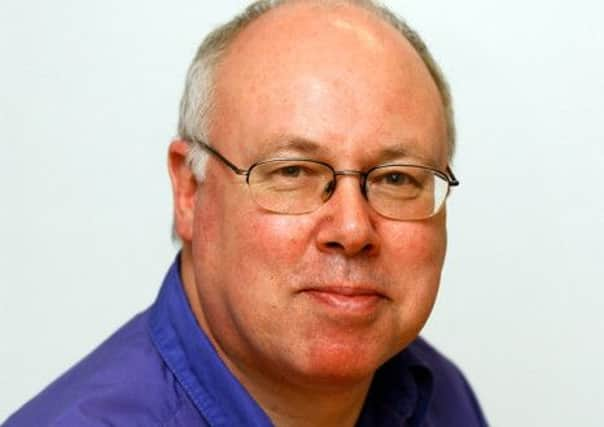Comment: George Osborne ambitions may be deflated


After all, thanks to a little quantitative easing from the Bank of England, investing in equities had yielded stellar returns in the wake of the 2008 banking crisis. The past year saw the FTSE 100 reach 6,500, delivering an inflation-beating 10 per cent on your money. There was loose talk of the FTSE breeching 8,000.
In fact, the FTSE looks like finishing the year much where it started, having lived through a year of extraordinary gyrations and uncertainty. However, even this neutral outcome hides a dangerous reality. Western bourses have been kept alive this year because cash is flowing out of emerging markets, seeking a safe have in North America and Europe. This could be the calm before the storm.
Advertisement
Hide AdAdvertisement
Hide AdGlobal fundamentals changed dramatically in 2014. Chinese growth has reached a climacteric caused by over-investment and a collapse in profit margins. Goodbye European luxury exports and China’s voracious demand for minerals. Oil prices have plummeted thanks to the Sunni bits of Opec deliberately pumping too much, the better to undermine the US shale industry. With a quarter of the FTSE 100 given over to oil majors and miners, it has nowhere to go but down.
OK, the UK economy is growing in nominal terms and falling inflation has turned anaemic wage growth mildly positive. But UK economic fundamentals have not improved much.
Take Rolls Royce. If ever the UK was going to see a “rebalancing” of the economy towards manufacturing exports, surely Rolls would lead the way?
But in February, Britain’s iconic technology flagship shocked the market by issuing its first profit warning in a decade, followed by a second in October. Rolls had tried to diversify away from making jet engines into a bewildering variety of high tech products and lost its commercial focus by doing so.
The year ended with the share price cratering and calls for the firm to split into two or sell its non-aerospace assets.
2014 was preoccupied with the independence referendum, and extravagant claims that a Yes vote would see a flight of businesses from Scotland. Curiously, this week Standard Life, which had made unrealistic noises about shifting to the over-crowded and expensive City had Scots voted for self-government, revealed it was signing the lease for its investment business to occupy the whole of a new £75 million office development in St Andrew Square.
In fact the Scottish economy registered strong growth in the second half of 2014, suggesting that business was (at worst) neutral towards the constitutional question. Service output is above pre-recession levels while participation rates in the Scottish labour market has reached record highs. Might it be that all that talk about independence had the effect of raising domestic self-confidence, regardless of the final vote?
However, the big story in 2014 is the return of deflation globally. What at first seemed a eurozone and Japanese problem has spread to the UK and the rest of the world, with the collapse of oil prices.
Advertisement
Hide AdAdvertisement
Hide AdI don’t doubt there will be an initial boost to consumption in 2015. But deflation ultimately makes consumers cautious about spending, and it increases the real burden of private and public debt. As George Osborne is about to discover.
SUBSCRIBE TO THE SCOTSMAN’S BUSINESS BRIEFING